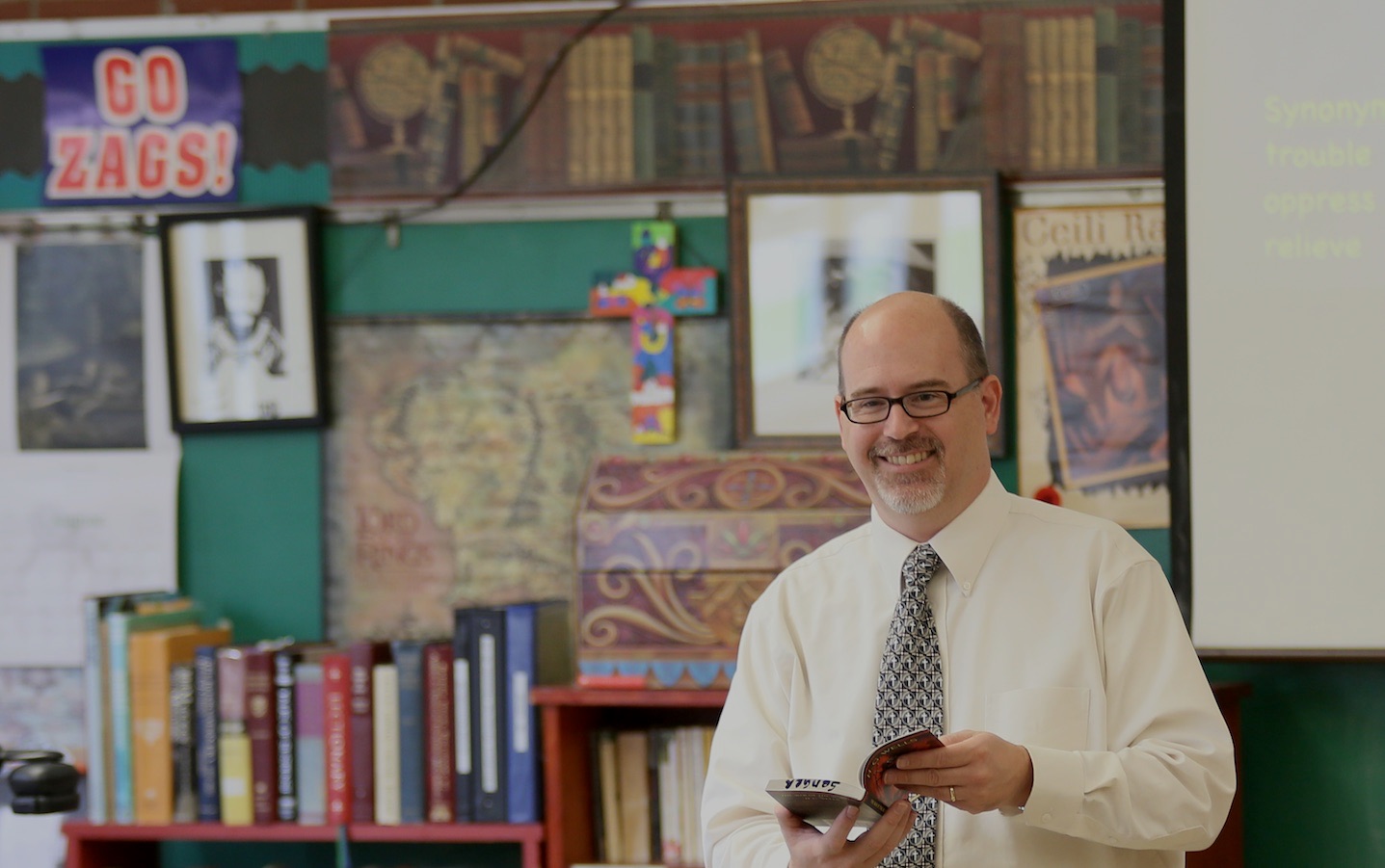
Wesley Fryer has published a presentation he made on Copyright for Educators. Wesley was named an Apple Distinguished Educator in 2005 and in this slide show he gives teachers important information about the impact of copyright law on the classroom.

Inspiration, News, and Resources for Catholic Educators

Wesley Fryer has published a presentation he made on Copyright for Educators. Wesley was named an Apple Distinguished Educator in 2005 and in this slide show he gives teachers important information about the impact of copyright law on the classroom.

The Catholic News Agency reported today on an un-named twelve-year-old girl who is beginning to gain attention from her class speech on the topic of abortion. Her delivery is clear, confident and effective. She summarizes the Catholic position on abortion in a way that few politicians can appreciate. Covering most of the pro-life bases, she discusses when life begins, and ends her speech by quoting Horton Hears a Who. I’m not sure where she goes to school, but I hope she got an “A.” Take a look for yourself:
Tip of the hat to Jean at Catholic Fire.

The Pope has a humanitarian organization called the Catholic Near East Welfare Association, and it is working to rebuild its clinics and grammar schools that were destroyed by the recent violence in the Gaza strip area. If you or your students would like to help, visit the CNEWA website: http://www.cnewa.org/home-us.aspx
Also, Thomas Awiapo spoke to our students recently about the great work being done by Catholic Relief Services. Below, you will find an inspirational Catholic Relief Services video about Thomas’ life:
If you would like to know more about Catholic Relief Services, visit their web site: http://crs.org
 If your students ever wonder where communion wafers come from, be sure to check out the following 3-minute video posted by Michael Paulson at Articles of Faith:
If your students ever wonder where communion wafers come from, be sure to check out the following 3-minute video posted by Michael Paulson at Articles of Faith:
An Inside Look at Wafer-Making
Hat tip to Deacon Greg Kandra at The Deacon’s Bench.
This provocative video challenges us to think seriously about the place of technology in our schools:
Do you agree with their comments? In light of the opinions expressed in the video, what can Catholic teachers do help students become responsible users of technology? And what about those who don’t have access to technology?
My Take: Students who have access to computers and cell phones are constantly consuming and creating content. If we are to help them become bearers of Christ’s light to the world, we need to help them evaluate the content they’re taking in and the content they’re creating. In some respects, this is no different than what we’ve done for decades. We try to help students think for themselves and apply the teachings of Christ to the ethical decisions they make, and we challenge students to bring the Good News to every arena of their lives. But we can’t do that unless we are familiar ourselves with the ways in which they are using technology–unless we speak their language and know how to use the tools they use.
What’s your take?